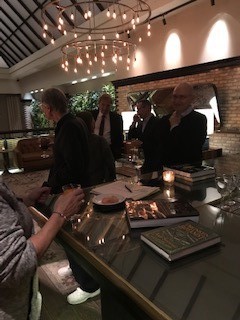December 2018 Newsletter
President's Message
Dear ACCEC Fellows:
2018 Law School Symposium
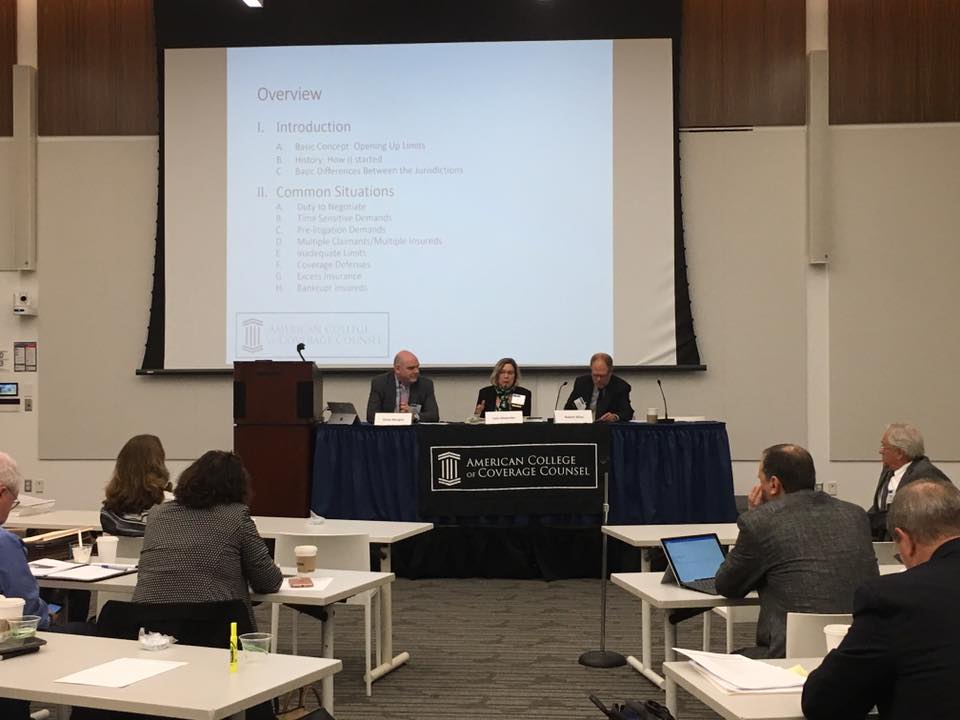
The College presented its Fifth Annual Law Symposium “What’s in a Name? an Examination of ‘Named’ Legal Doctrines in Insurance Coverage” – at the American WashingtonCollege of Law on October 28, 2018. Many thanks to Bob Kelly, Helen Michael and Scott Godes for assembling seven panels of experts who lived up to the promise of providing insights into doctrines that effect all of us in our practices across the country. Once again, the symposium featured the best in our profession addressing tough questions in professional, creative and collaborative manner. The materials can be accessed here.
The panelists presented on the following timely – and timeless – topics:
Estoppel by Any Other Name: The Meaning of this Doctrine in Insurance Law
Laura Foggan
Jodi McDougall
John Vishneski III
The presenters explored the complex ties of the estoppel doctrine as applied where an insurer fails to defend or defends without adequately reserving rights. They also addressed the drafting history of the ALI Restatement on Estoppel.
“Stowers” and the Art of Turning the Table on an Insurer with a Policy Limits Settlement Demand
Robert Allen
Julia Molander
Vince Morgan
The panel explored and discussed the history, development, strategy, and practice involved in an insurer’s duty to settle a claim against an insured within the policy limits-- and the consequences of failing to do so. In Texas, the concept of an insurer’s potential liability in excess of its policy limits for failing to settle a case within limits is called the “Stowers” doctrine. A photo of the “Stowers” building (shown here), along with other historical materials from that case such as the jury charge, were included in the slide presentation.
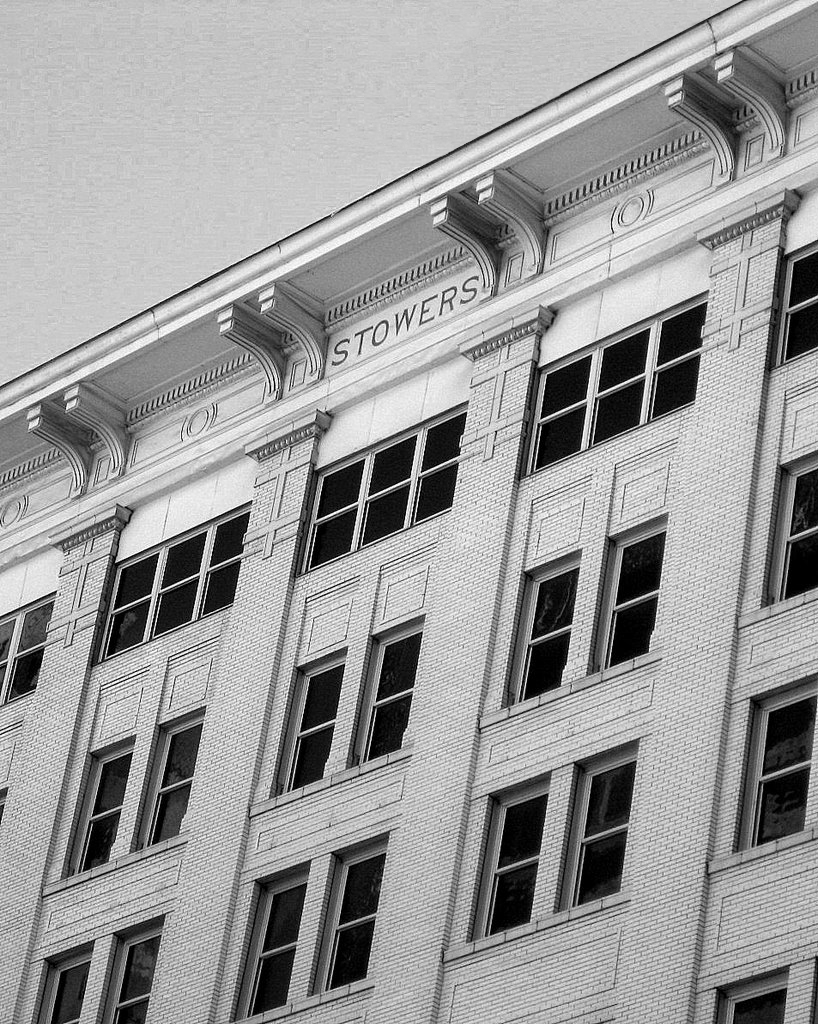
The Art of the Deal Doctrines: So Many Doctrines in So Little Time
Michael Huddleston
Meghan Magruder
Charles Spevacek
This panel examined named doctrines for working with “deals” used to extricate an insured from a potential or actual excess judgment, including discussion of Gandy, Damron, Coblenz, Miller-Schugart, Crist/Johansson Arrangement. It covered practical, ethical and legal issues presented by such arrangements and the attacks made on them by carriers. To this California policyholder’s shock, it also discussed situations where an insurer can settle out covered claims without resolving the entire action.
How Will the ALI’s New Restatement of the Law, Liability Insurance Shape the Future of Coverage Disputes?
Michael Aylward
John Buchanan, III
Harold Kim, U.S. Chamber of Commerce
Lorelie Masters
William Shelley
The Restatement of Law, Liability Insurance is the first Restatement devoted specifically to a single industry. For our luncheon presentation, ALI members who were active in the development and debate concerning this Restatement discussed its most important and controversial provisions and forecasted its implications for shaping the future of insurance coverage litigation.
From Keene to Carter-Wallace, from Boston Gas to Owens-Illinois: The Clear Winner in the “Named Doctrine” Contest
Georgia Kazakis
Stephen Pate
Scott Seaman
Steve Pate moderated a dialogue between Georgia Kazakis and Scott Seaman on the competing allocation doctrines for “long-tail” claims, along with issues such as the impact of “prior insurance” and “other insurance” clauses, the mechanism for exhaustion of underlying layers of coverage, the differences between allocation of defense versus indemnity, and responsibility for uninsured/underinsured periods.
Independent Counsel and the Tripartite Relationship: The Cumis Doctrine and Others Entitling Insureds to Pick Their Own Lawyers and Control Their Defense.
David Anderson
Troy Froderman
Susan Harwood
Mary McCurdy
This panel examined the tripartite relationship that is created between the policyholder, its insurer, and defense counsel when an insurer retains defense counsel to defend its policyholder. It discussed various circumstances that can create conflicts of interest for defense counsel that entitle the policyholder to select independent defense counsel with no ties to the insurer, focusing on how the states of Illinois, Florida, California, and Arizona address the respective rights and duties of the parties in this context.
Jurisdictional and Venue Considerations in Insurance Coverage Litigation: The “Colorado River” Runs Through It
John Heintz
Edward Parks
Caroline Spangenberg
Koorosh Talieh
The panel examined the application of judicial abstention doctrines, forum non conveniens and related venue principles, and personal jurisdiction requirements in the context of competing insurance coverage actions in state and federal courts, with practice pointers on how to get “first crack” at resolving coverage disputes in the preferred forum.
Regional Meetings
We hope you're taking advantage of the opportunity to meet with other fellows in your region, to plan local events and identify potential new Fellows for College. Many thanks to Spence Taylor and Jodi McDougall for their organizing efforts.
Strategic Planning
Strategic planning continues, with this year focused on member and community engagement. Look forward to more news in our next Newsletter.
Mary McCutcheon
President
ACCC NEWS
2019 ACCC Annual Meeting Call for Speakers
The American College of Coverage Counsel is still seeking speakers for our 2019 Annual Meeting, to be held May 8-10, 2019, at the Chicago Athletic Club, Chicago, IL. Sessions will be held all day Thursday, May 9, and the morning of Friday, May 10.
We are looking for panel and presentation ideas emphasizing recent developments and trends in first party and third party coverage matters (including extracontractual exposures), practical pre-trial and trial tips and techniques in coverage cases, and navigating ethical minefields in a coverage practice.
Panels must be evenly balanced between policyholder and carrier attorneys. Only Fellows of the College may be speakers, with the exception of judges or professors.
Please note that if your proposal is selected, the program’s panel will be required to submit at least one publishable paper to qualify the program for CLE credit.
Click here to submit a session for the Annual Meeting.
Extended submission deadline:
5:00pm ET, Friday, December 14, 2018.
Save the Date
Wednesday, May 8 - Friday, May 10
Chicago Athletic Association
12 South Michigan Avenue
Chicago, IL 60603
Annual Meeting Co-chairs:
Linda Bondi Morrison
J. James Cooper
Annual Meeting Vice Chairs:
Angela Elbert
Robert Kole
Should You Join the Blockchain and Cryptocurrency Committee?
Yes! Your Bitcoin may be worth a fraction of what you paid for it, but blockchain technology is here to stay. It is predicted to revolutionize the way the insurance industry conducts business, and inevitably will raise insurance coverage placement and claims challenges.
Don’t be left behind! Contact Mary Borja or Stephen Palley, and check out Stephen’s article in the October 8, 2018 issue of Risk Management Magazine, “Understanding the Risk of ‘Immutable’ Blockchain Applications” here.
ACCC Law School Practical Skills Writing Competition
This year's ACCC Law School Practical Skills Writing Competition is now underway. The ACCC sent an email announcing the competition to law school professors around the country in early September, and we have already received several responses from law students indicating interest in the competition. The deadline for students to announce their intention to participate is January 10, 2019, but final submissions are not due until March 15, 2019. Each competition submission will consist of a 3,000-word memorandum of points and authorities in support of or in opposition to a motion for summary judgment on one of a set of specified insurance law issues.
The top three students in the competition will receive cash prizes and will also be invited to attend the ACCC's Annual Meeting in Chicago on May 9-10, 2019, with all expenses paid. The co-chairs of this year's competition, who will be reviewing the submissions and selecting the winners, are Christine Haskett of Covington & Burling LLP and Clay Crawford of Foland, Wickens, Roper, Hofer & Crawford, P.C.
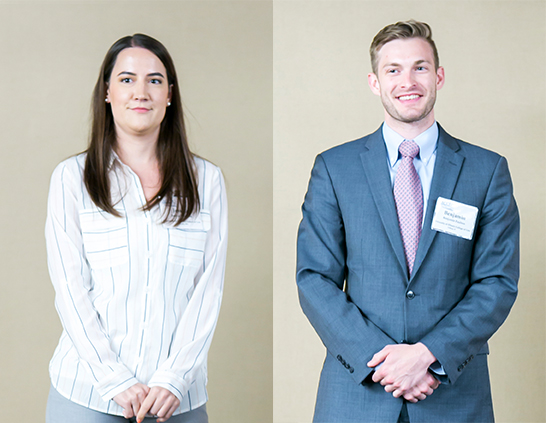
Last year's law student winners were Jessica Peterman (University of Missouri School of Law), Benjamin Paulsen (University of Illinois College of Law), and Cliff Breese (Villanova University School of Law), all of whom began their careers in insurance coverage practices this fall.
Chicago Fellows Social Event at Nico Osteria
On November 15, 2018, a cold, but beautiful evening, more than 15 of ACCC’s Chicago Fellows (and nominees) braved the cold to gather at one of Chicago’s hippest venues, Nico Osteria on Rush Street. Our gathering was graced with award-winning mixology tips on how to interpret and construct Italian-inspired cocktails from recent Jean Banchet nominee, Olivia Duncan. We also conducted a brief business meeting to address the College’s checklist for names of potential members, a survey about mediation training, and whether there is any interest in joining or becoming active in any of the College’s committees or initiatives. Everyone who came was most appreciative that the College would sponsor a get-together of colleagues who so rarely have an opportunity to socialize. A big thanks to Jill Berkeley for organizing the event.
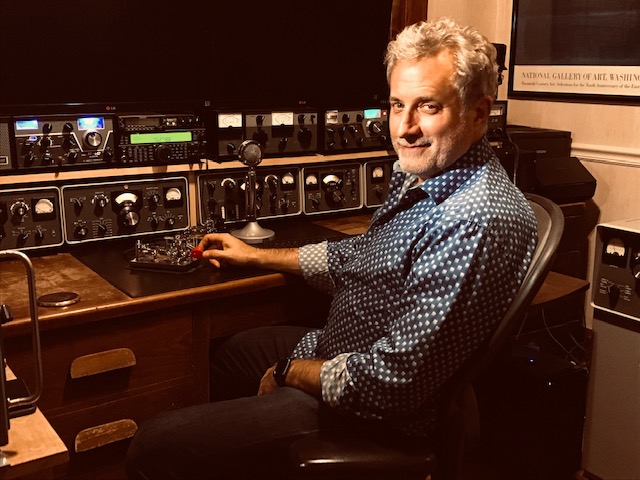 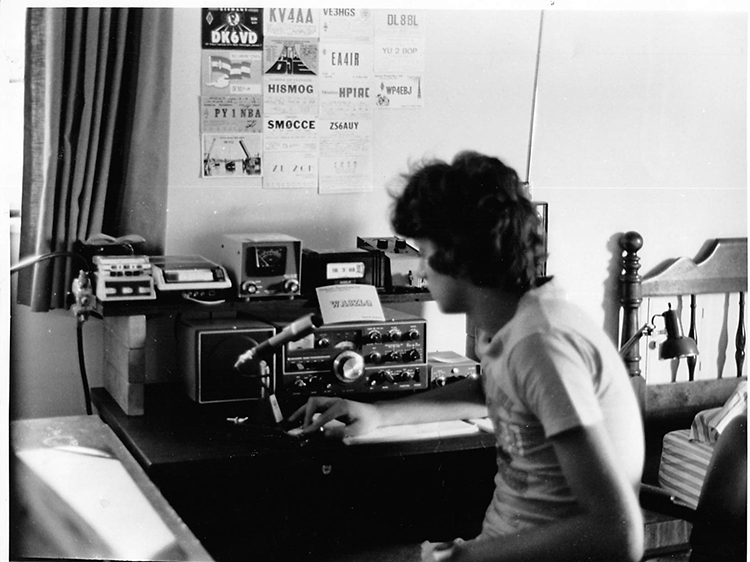
What is your work background?
After undergrad, I “accidentally” started working in the insurance industry as a primary commercial underwriter, then as a reinsurance underwriter. I found underwriting and marketing reinsurance to be pretty tedious, but while studying for the CPCU designation I was exposed to the legal environment of insurance and it seemed pretty interesting. So I went to law school thinking that maybe I’d practice insurance law. I started my career doing environmental coverage work for insurers at Meagher & Geer in Minneapolis, then I went to Blatt, Hammesfahr & Eaton in Chicago, where I worked on Superfund sites for Lloyd’s of London. After that I switched to the policyholder side, spending ten years at Schiff Hardin, five years at Howrey, and then five years at a small policyholder firm before starting my own firm two years ago. Along the way, I was very lucky to have had ACCC fellows Laura Hanson and Jill Berkeley as mentors.
Tell us a little about your practice.
When I opened my own firm, I asked Dennis LaGory, one of my former partners from the Schiff Hardin days, to come work with me. We handle a very diverse mix of policyholder coverage matters for both large and small clients, doing a lot of work in the defective construction, D&O, and E&O space for a wide variety of industries. We frequently enforce our clients’ rights to independent counsel when insurers and their appointed defense counsel refuse to acknowledge conflicts of interest. Starting a new business has been a lot of hard work, but I love the freedom it affords me. My office is an eight-minute drive from home or a nice half-hour walk.
What do you like to do when you’re not working?
I like to cook, read, and play with Phoebe, our 6-month-old Australian cattle dog. I got into woodworking about 15 years ago and enjoy building arts & crafts-style furniture from the early twentieth century. About four years ago, I met a local attorney who is a licensed amateur (or “ham”) radio operator. I had been a licensed ham as an 11-year-old kid, but I basically abandoned the hobby in college, sold my transceiver to raise money for law school, and inadvertently let my FCC license expire. My new attorney friend convinced me that practicing insurance coverage law was not nearly geeky enough. I needed to get back into ham radio, and I have done so in a pretty big way.
Wow. People still do ham radio?
Yes! It seems to be more popular than ever, with approximately 700,000 licensed hams in the United States. The hobby has many facets. My main interests are working “DX” (contacting other operators in foreign countries), practicing and preserving the art of communicating via Morse code, and collecting and operating antique tube radios from the 1950s through the 1970s. I have basically acquired all of the radios I fantasized about owning as a teenager and had them refurbished to the point where they look and operate as if they were new. My wife, Ashlee, has been extremely supportive and understanding, and even designed my firm logo to incorporate an “A” in Morse code.
How did you get interested in ham radio?
When I was about nine or ten years old, a third-grade classmate invited me over to play after school. We were running around his house when I saw a huge desk full of radio equipment in his father’s den. I was instantly mesmerized. His father found me a receiver so that I could listen to the ham radio and shortwave frequencies, taught me Morse code, and helped me prepare for the licensing exam. It was very intimidating showing up at the FCC regional office in Pittsburgh as an eleven-year-old to take the Morse code and electrical theory exams, but I passed. The hobby has always fascinated me in part because of the complex science behind radio propagation. We’re bouncing signals off of the ionosphere and many factors affect our ability to do so at any given time of the day on any given frequency. So, to me, it’s like an ongoing science experiment with many variables, uncertainties, and surprises.
Who do you talk to?
I like to joke that I talk to more Russians than Paul Manafort, but it’s probably true. Since being relicensed about four years ago, I’ve contacted 225 countries (our membership association counts countries differently than the United Nations does). Recent contacts include Zimbabwe, Palestine, and the island of Mayotte in the Indian Ocean off the coast of Southeast Africa. I reestablished contact with the now 78-year-old father of my grade school friend and we communicate over the radio semi-regularly via Morse code at about 20 words per minute. My most memorable contact occurred towards the end of 1978, when I was fifteen. I was tuning around the bands when I stumbled across an extremely friendly, English-speaking gentleman who was extolling the virtues of a paradise-like settlement that he and others had created in a Central American country. It turned out to be the radio operator at Jonestown, Guyana, just a couple of months before the massacre.
Welcome New Fellows!
David L Brown
Goldberg Segalla
Greensboro, NC
Lisa Weixelman
Polsinelli
Kansas City, MO
Erik Knutsen
Queen's University Law School
Kingston, ON
Honorary Fellow
|




